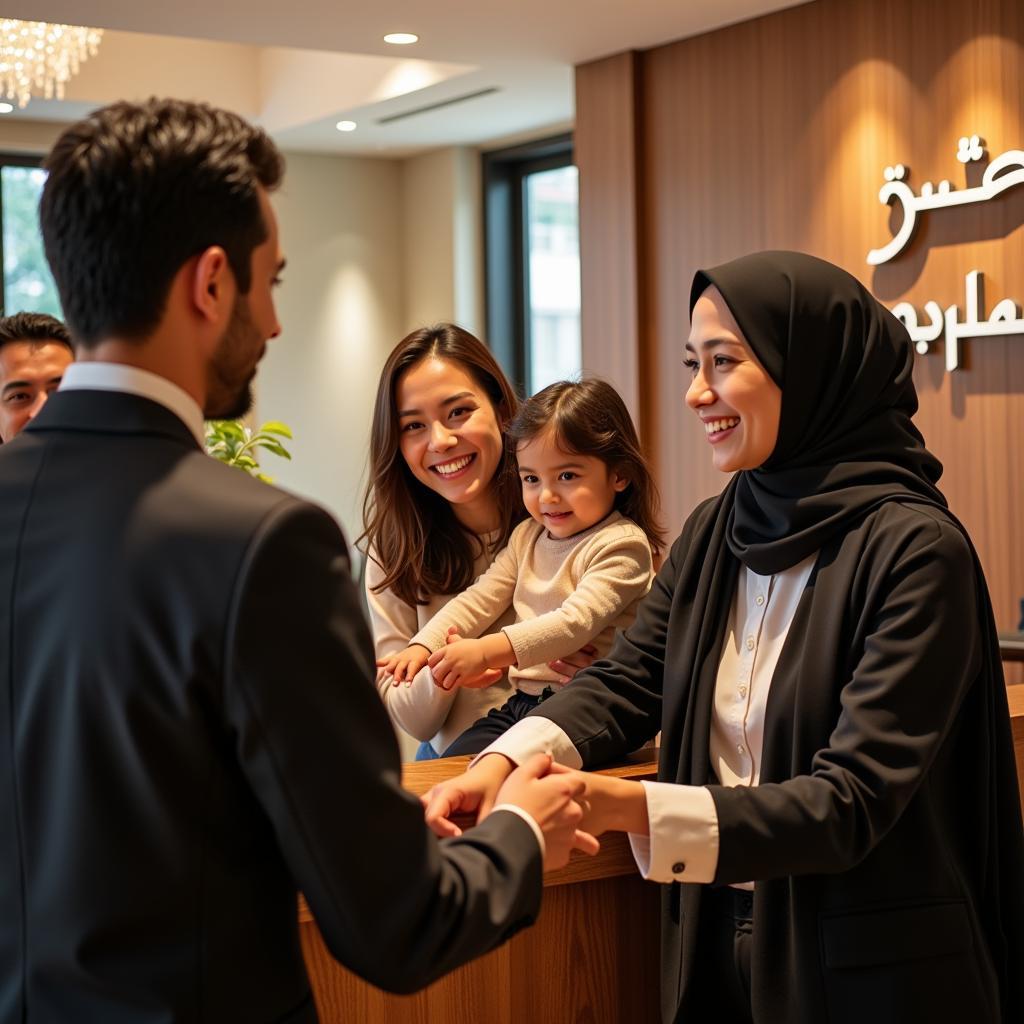Hospitality Arabic is a specialized branch of the Arabic language that focuses on communication within the hospitality industry. It encompasses a range of linguistic nuances, cultural sensitivities, and professional etiquette specific to welcoming and serving guests from Arabic-speaking backgrounds.
As the world becomes increasingly interconnected and the tourism industry flourishes, the demand for professionals skilled in hospitality Arabic continues to rise.
The Significance of Hospitality Arabic
The importance of hospitality Arabic stems from the fact that language is much more than just words; it is a powerful tool that bridges cultural gaps and fosters genuine connections. For Arabic-speaking guests, being able to communicate in their native tongue enhances their comfort, trust, and overall satisfaction.
Imagine arriving at a hotel after a long journey, being greeted with a warm “مرحبا بكم” (Marhaban bikum – Welcome), and having your needs understood effortlessly. This simple act of linguistic hospitality can significantly impact a guest’s perception of their stay, making them feel valued and respected.
 Arabic-speaking family checking into a hotel with a staff member fluent in Arabic
Arabic-speaking family checking into a hotel with a staff member fluent in Arabic
Key Benefits of Utilizing Hospitality Arabic
Implementing hospitality Arabic within your establishment offers numerous advantages:
- Enhanced Guest Experience: Communicating effectively with Arabic-speaking guests in their language creates a welcoming and inclusive atmosphere, leading to higher guest satisfaction.
- Competitive Advantage: In a globalized world, offering services in hospitality Arabic sets your business apart, attracting a wider range of clientele.
- Improved Communication & Efficiency: Breaking down language barriers minimizes misunderstandings and streamlines service delivery, enhancing operational efficiency.
- Building Trust & Loyalty: Speaking the language of your guests demonstrates respect for their culture and builds trust, leading to increased customer loyalty and positive word-of-mouth referrals.
- Cultural Sensitivity: Understanding the cultural nuances embedded in the Arabic language helps avoid misinterpretations and ensures respectful interactions, fostering positive guest relations.
Essential Arabic Phrases for Hospitality Professionals
Here are some basic Arabic phrases that every hospitality professional should know:
- Greetings:
- مرحبا (Marhaban) – Hello
- صباح الخير (Sabah al-khayr) – Good morning
- مساء الخير (Masaa al-khayr) – Good evening
- Courtesy Phrases:
- شكرا (Shukran) – Thank you
- عفوا (Afwan) – You’re welcome
- من فضلك (Min fadlik) – Please (masculine)
- من فضلك (Min fadliki) – Please (feminine)
- Basic Questions:
- كيف حالك؟ (Kayf halik?) – How are you? (masculine)
- كيف حالك؟ (Kayf haliki?) – How are you? (feminine)
- Useful Phrases:
- أين الحمام؟ (Ayna al-hamaam?) – Where is the bathroom?
- أريد أن أحجز غرفة. (Uridu an ahjiz ghurfa.) – I want to book a room.
- هل تتكلم الإنجليزية؟ (Hal tatakallam al-Ingliziyya?) – Do you speak English?
Investing in Language Training: A Wise Decision
Investing in hospitality interpreter training or language learning resources for your staff is a strategic move that reaps significant rewards. By equipping your team with the necessary language skills, you are empowering them to provide exceptional service and create lasting positive impressions on your Arabic-speaking guests.
Conclusion
In today’s interconnected world, mastering hospitality Arabic is no longer a luxury but a necessity for businesses in the hospitality industry aiming to thrive in a competitive market. By embracing linguistic and cultural diversity, you are not only enhancing your guests’ experiences but also positioning your brand as a leader in global hospitality excellence.